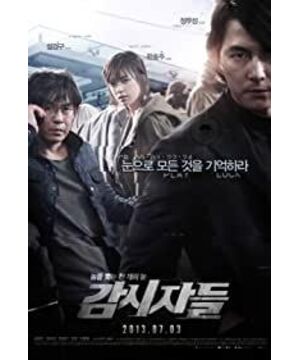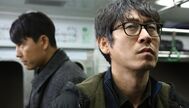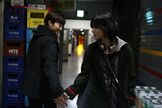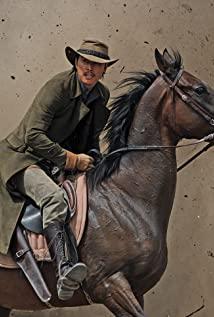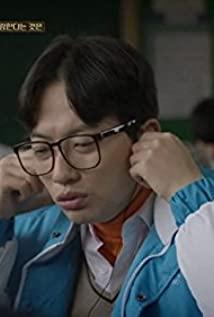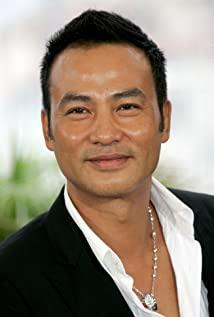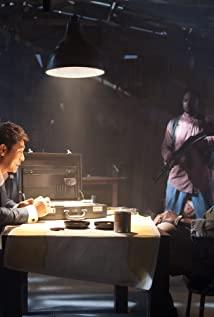When I watched the movie, I didn’t know that this movie was adapted from You Naihai’s "Tracking", but about 15 minutes after the movie started, I faintly felt that the rhythm and the sense of the lens felt like a galaxy impression, and silently thought. This director really likes Hong Kong movies. After that, I looked at "Tracking" again, and the plot remained basically the same, but some of the details added in the Korean version were commendable, and the results were wonderful.
In the past few years, which country has the most successful Asian film learning from Hollywood? It must be a Korean movie. You can tell from the production of this movie. Let’s exaggerate photography first. This film was produced 6 years later than "Tracking". The variety of photography techniques and technological development in these six years have not been a little bit, so the remake is technically better than the original photography. Sometimes there is not necessarily a good technique to have a suitable picture for the plot. At this point, "The Watcher" did a very good job. The photography added a lot of color to the film itself. For example, the plot in the subway was restored with computer stunts, which showed various small details at that time. Another example is that a police car crashed into a truck. When the camera is placed on the police car to create the first angle of view, increase the sense of tension and impact; and when the protagonist chased the "shadow" to the river to observe all the callers, he took a big overhead shot with aerial photography equipment. Very sensational; and use a lot of close-up details to describe the psychology of the subject. In terms of photography, "The Watcher" outperformed "Tracking."
Let's talk about the plot and characters. The Hong Kong version only has 90 minutes, while the Korean version has increased to 120 minutes. The main reason is that the plot and characters have been modified and enriched.
The Hong Kong version of You Naihai emphasizes the Buddhist view of causal reincarnation. When Liang Jiahui and his master said, "How can Buddha bless people like us", it indicates that Liang Jiahui will not end well. Sure enough, he was accidentally caught by a hook. died. And Ren Dahua fell into a pool of blood after being stabbed to tell a joke is the most sensational point of "Following", the Korean version has revised this, and changed the ending to the sheriff's forced death at the subway exit after enduring the severe pain. The "shadow" is full of personal heroism. To be honest, I don't like this adaptation, but I also think that the ending of the Hong Kong version is too far-fetched, as if it should be added to prove the reincarnation. I can't say what is a good ending. I can only say that these two endings fully express what the two directors need to express, and they are the best endings for each.
In addition, in the Hong Kong version, the pig girl saw that someone was beaten and did not get out of the car to stop it. Later, that person lived next to Fat Lin Xue’s house, and in the end it was the criminal they wanted to catch. Here again, the reincarnation point of view emphasized by You Naihai appeared. . The pig girl in the Korean version interfered with the crime process. Although these two plots are both to shape the growth experience of the pig girl, the role of the Korean version is limited to this. In this way, this adaptation is actually not a success.
After something went wrong in the first robbery, the dialogue between "Shadow" and the boys also changed. In the Hong Kong version, Leung Ka Fai performed quietly, one by one, and one by one, which was very good. In the end, the quarrel stopped because there was a woman in the opposite building. The clothes are full of black humor. In the Korean version, in order to emphasize the cruelty of the "shadow", a more violent and direct method is used. Zheng Yusheng is very handsome. There is no difference between the high and the low. Each has its own advantages, and all have made a lot of plot and character creation in the following. Good bedding.
Regarding the characters, the Hong Kong version really only describes the pig girl played by Xu Zishan, the dog head played by Ren Dahua, the boss played by Meiqi Shao, the fat man played by Lin Xue and the shadow played by Leung Ka Fai, and the others are all here for soy sauce. The Korean version has greatly expanded the characters and added the little handsome guy to the monitoring team. In the Hong Kong version, the police officer who was stabbed to death has nothing to do with the surveillance team. When the Korean version of the little handsome guy came forward to interrogate, he knew that he was a criminal, but he was stabbed so easily. To die, I always feel a bit far-fetched. Of course, this sets off the cruel "shadow" and makes it easier for the plot to move towards the usual aphrodisiac part of Korean dramas. It is a change in Korean style.
The "shadows" played by Zheng Yusheng and Liang Jiahui are the highlights of the film. Needless to say, Liang Jiahui's performance has maintained a consistently high level. Zheng Yusheng is also handsome this time, and the director takes good care of him and adds a lot of plays to him alone. Including the last part of the bridge where he sought revenge from his teacher, the heads-up in the narrow alley, this is obviously the plot of the Hong Kong-made B-level action, plus Zheng Yusheng's clean and neat action design, it really makes people mistakenly think that this is a movie. The authentic Hong Kong movies, and finally solve their own teacher quickly and without procrastination. It’s just that the handsome Zheng Yusheng’s face is too facial and there is a suspicion of blindly acting handsome. Compared to Leung Ka Fai, Leung Ka Fai’s "Shadow" relies more on his unexpected intuition, while Zheng Yusheng focuses more on fine calculations. , For this point, I really like Zheng Yusheng.
The most important part of the two movies is of course the Pig Girl, because I first watched Han Xiaozhu and then Xu Zishan. The gap between the two really made me unacceptable at first. Han Xiaozhu should be the best performer in the film. On the contrary, Xu Zishan only wrote With two words on her face-"Newcomer", just kidding, Xu Zishan is really worthy of the title "Pig Girl", because that meaty face fits the name too much. Therefore, the Hong Kong version is more like Xu Zishan's "Graduation and Growth", while in the Korean version, Han Hyo-joo is much more convincing. He has his own ideas without losing the immaturity of a girl. I can only say that Han Hyo-joo beats Xu Zishan.
Having said that, although the basic pattern of the Korean version of the story is not much different from that of the Hong Kong version, because of the advancement of photography technology and the screenwriter's in-depth exploration of the details of the characters, the Korean version appears more complete and fuller, and has a blockbuster temperament. The Hong Kong version drew a huge but complete circle on the plot. Although there were small flaws, it seemed to be done in one go. Finally, reincarnation was used to pull all the plots back to the starting point. This is the best place You Naihai has done. From the perspective of viewing effects, I prefer the Korean version. Unfortunately, no matter how good it is, it is also a remake. I applaud You Naihai’s screenwriting skills. Without his story, we would not have seen the Korean version of the movie.
Welcome to follow my WeChat public account: Jieyou Movie Grocery Store
View more about Cold Eyes reviews


